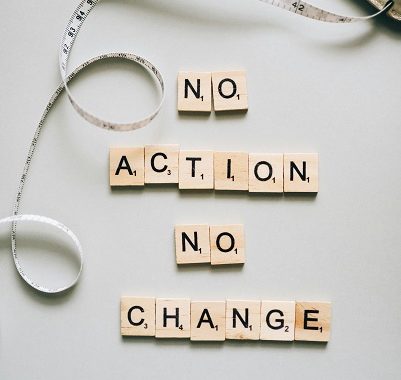
Childhood obesity has emerged as a pressing global health concern, with its prevalence reaching alarming levels in recent years. As we strive to comprehend the multifaceted nature of this epidemic, direct quotes from experts, researchers, and healthcare professionals offer valuable insights into the complex interplay of factors contributing to childhood obesity.
Direct Quotes About Childhood Obesity
-
Dr. Susan K. Johnson, Pediatrician:
“Childhood obesity is not merely a physical health issue; it is a complex problem with roots in societal, environmental, and familial factors. Parents play a pivotal role in shaping their child’s eating habits and physical activity. It’s crucial to create an environment that promotes healthy choices from an early age.”
Dr. Johnson’s perspective underscores the importance of a holistic approach to combating childhood obesity, emphasizing the need for parental involvement and environmental changes to foster healthier lifestyles.
-
Professor Maria Rodriguez, Nutritionist:
“Nutritional education is key to addressing childhood obesity. We need to empower children and their families with the knowledge to make informed food choices. Teaching basic nutrition in schools and promoting the benefits of a balanced diet can be transformative in preventing and managing obesity.”
Professor Rodriguez highlights the role of education in combating childhood obesity, emphasizing the need for early intervention through comprehensive nutrition education programs.
-
Sarah Thompson, Physical Education Teacher:
“The decline in physical activity among children is a major contributor to the obesity epidemic. Incorporating enjoyable and engaging physical activities in schools is essential. It’s not just about weight; it’s about promoting a lifelong love for movement and exercise.”
Sarah Thompson’s perspective sheds light on the importance of physical activity in addressing childhood obesity, emphasizing the need for schools to prioritize and integrate enjoyable physical activities into their curricula.
-
Dr. James Mitchell, Clinical Psychologist:
“The psychological aspects of childhood obesity are often overlooked. Emotional and stress-related eating can be significant contributors. Addressing the emotional well-being of children and promoting a positive body image are crucial components of any effective obesity prevention strategy.”
Dr. Mitchell underscores the psychological dimensions of childhood obesity, urging healthcare professionals and policymakers to consider the emotional well-being of children in the broader context of prevention and intervention.
-
Michelle Ramirez, Parent and Advocate:
“As a parent, navigating the challenges of providing nutritious meals and encouraging physical activity can be overwhelming. Access to affordable, healthy food options and community resources can make a significant difference in the fight against childhood obesity.”
Michelle Ramirez provides a firsthand perspective on the challenges parents face in promoting healthy habits for their children. Her quote highlights the importance of creating supportive environments and accessible resources for families.
-
Dr. Michael Turner, Pediatric Endocrinologist:
“Childhood obesity is a health crisis with far-reaching consequences. Beyond the physical implications, we’re witnessing an increase in obesity-related conditions like type 2 diabetes in children. Addressing this challenge demands a collective effort from healthcare professionals, policymakers, and communities.”
Dr. Turner emphasizes the urgency of a collaborative approach involving various stakeholders to tackle the wide-ranging health implications of childhood obesity, highlighting the need for comprehensive strategies.
-
Professor Emily Chen, Public Health Researcher:
“The obesogenic environment that children are exposed to plays a pivotal role in shaping their dietary habits. Our food systems and marketing practices heavily influence the choices available to them. It’s imperative to advocate for policy changes that promote healthier food environments for children.”
Professor Chen draws attention to the environmental factors contributing to childhood obesity, stressing the importance of policy changes to create healthier food environments and combat the pervasive influence of marketing on children’s dietary choices.
-
Coach David Martinez, Youth Sports Advocate:
“Physical activity is not just about combating obesity; it’s about building confidence, teamwork, and a positive self-image. Through sports and recreational activities, we can instill healthy habits in children that extend beyond weight management.”
Coach Martinez underscores the broader benefits of physical activity, emphasizing its role in fostering holistic development and positive self-perception, thereby contributing to the overall well-being of children.
-
Dr. Sophia Rodriguez, Child Psychologist:
“Understanding the socio-economic factors linked to childhood obesity is crucial. Families facing financial constraints often have limited access to fresh, nutritious foods. We must work towards making healthy choices more accessible and affordable for all segments of society.”
Dr. Rodriguez highlights the socio-economic dimensions of childhood obesity, emphasizing the need for interventions that address disparities in access to healthy food options and resources among different socio-economic groups.
-
Alex Morgan, Youth Health Advocate:
“As a young advocate, I believe that empowering children to make healthy choices begins with education and fostering a positive relationship with their bodies. We need to create spaces where kids feel encouraged to embrace an active lifestyle and make nutritious choices without judgment.”
Alex Morgan brings a youth perspective to the conversation, emphasizing the importance of empowering children with the knowledge and support to make healthy choices while promoting positive body image and self-acceptance.
-
Chef Julia Anderson, Culinary Educator:
“As a chef and culinary educator, I believe that teaching children to enjoy cooking and preparing nutritious meals can be transformative. By fostering a love for fresh ingredients and cooking, we empower them to make healthier food choices, setting the foundation for a lifetime of well-balanced eating.”
Chef Anderson highlights the importance of culinary education in promoting healthy eating habits from an early age, encouraging a hands-on approach to food that can positively influence dietary choices.
-
Dr. Samuel Williams, Exercise Physiologist:
“The rise of sedentary lifestyles among children is a significant contributor to obesity. Incorporating fun and engaging physical activities into daily routines, both at home and in schools, is critical for mitigating this trend. It’s about making movement enjoyable and accessible.”
Dr. Williams emphasizes the need for making physical activity a joyful and accessible experience for children, promoting an active lifestyle that goes beyond formal exercise regimes.
-
Lily Chen, Parent and Nutrition Blogger:
“As a parent navigating the challenges of raising healthy kids, I’ve found that small, sustainable changes in family eating habits can make a big difference. It’s not about strict diets but about creating a supportive environment where nutritious choices are the norm rather than the exception.”
Lily Chen’s quote underscores the significance of gradual and sustainable changes in family eating habits, advocating for a positive and supportive approach to instilling healthy choices in children’s diets.
-
Dr. Raj Patel, Community Health Advocate:
“Community engagement is a powerful tool in the fight against childhood obesity. Local initiatives that promote shared spaces for physical activity, community gardens, and access to affordable, fresh produce play a pivotal role in creating health-conscious neighborhoods.”
Dr. Patel emphasizes the impact of community-driven initiatives in combating childhood obesity, highlighting the importance of creating environments that support healthy living at the grassroots level.
-
Emma Thompson, School Wellness Coordinator:
“In schools, wellness programs should extend beyond physical health to include mental and emotional well-being. Providing resources for stress management, fostering positive social interactions, and promoting a culture of self-care contribute to a holistic approach in preventing childhood obesity.”
Emma Thompson emphasizes the integral role of schools in addressing childhood obesity by incorporating holistic wellness programs that encompass mental, emotional, and social aspects in addition to physical health.
Inspirational Obesity Quote:
“Strength doesn’t come from what you can do; it comes from overcoming what you once thought you couldn’t. Let’s inspire our children to overcome the challenges of obesity and cultivate a strong, healthy future.” – Anonymous
This inspirational quote encourages a positive mindset, urging both parents and children to view the challenges of childhood obesity as opportunities for growth and resilience.
Quotes About Obesity in America:
“The fight against childhood obesity is not just a personal battle; it’s a collective responsibility. We must address societal, environmental, and systemic factors to create a healthier America for our children.” – Public Health Advocate
This quote highlights the broader societal dimensions of childhood obesity and emphasizes the need for collective efforts to tackle the issue at a national level.
Obesity Quotes Funny:
“Obesity is like a delicate balance between my love for food and my fear of stairs.” – Comedian
Injecting humor into the conversation, this funny quote sheds light on the challenges individuals face in maintaining a healthy lifestyle, using a lighthearted approach to address a serious issue.
Quotes About Obesity From Doctors:
“As doctors, we witness the consequences of obesity firsthand. It’s not just about the number on the scale; it’s about the impact on overall health. Prevention is the best medicine, and awareness is the first step.” – Dr. Emily Parker, Pediatrician
Dr. Parker emphasizes the significance of preventive measures and underscores the crucial role of awareness in addressing childhood obesity from a medical perspective.
Obesity Awareness Quote:
“Obesity awareness is the compass guiding us toward healthier futures for our children. Let’s turn knowledge into action, fostering environments that prioritize nutrition, activity, and overall well-being.” – Health Educator
This quote advocates for the transformation of awareness into tangible actions, urging communities to prioritize health-promoting environments for children.
BMI Quote:
“Understanding the Body Mass Index (BMI) is like deciphering a map to better health. Let’s navigate our children’s well-being with informed choices and a compass of healthy living.” – Nutritionist
This quote uses the metaphor of a map and compass to highlight the importance of BMI awareness in guiding decisions for children’s health.
Conclusion:
Direct quotes from experts, educators, healthcare professionals, and parents offer a nuanced understanding of childhood obesity. Combating this epidemic requires a multifaceted approach that addresses nutritional education, physical activity, emotional well-being, and community support. By incorporating these insights, we can work towards creating a healthier future for our children.
Further Reading:
38 Quotes About Childhood Obesity
FAQs:
What can you say about childhood obesity?
Childhood obesity is a concerning global health issue, placing the well-being of an entire generation at risk. The multifaceted problem is influenced by factors such as parental influence, societal, environmental, and economic conditions. Educational efforts and early interventions are crucial, emphasizing nutrition, physical activity, and mental well-being. The rise of childhood obesity necessitates collaborative efforts from parents, educators, healthcare professionals, and policymakers to create environments that support healthy lifestyles. Addressing this complex issue requires a holistic approach, considering both the physical and psychological dimensions, to ensure a healthier future for children.
What is a good thesis statement for childhood obesity?
“The escalating prevalence of childhood obesity demands urgent attention and comprehensive interventions, as its long-term impact on physical health, mental well-being, and societal health costs poses a significant threat. To combat this epidemic effectively, there is a critical need for multifaceted strategies, including parental education, school-based initiatives, and policy changes that prioritize nutrition, physical activity, and mental health support for children.”
What is childhood obesity in simple words?
Childhood obesity, in simple terms, refers to a condition where children carry excess body weight, mainly due to an imbalance between calories consumed and calories expended through physical activity. It poses health risks and can lead to various complications, affecting both physical and mental well-being. Addressing childhood obesity involves promoting a healthy lifestyle through balanced nutrition, regular exercise, and overall well-being awareness.
What do doctors say about childhood obesity?
Doctors express grave concerns about childhood obesity, emphasizing its detrimental impact on children’s health. They stress the need for early intervention, promoting healthy lifestyles, balanced nutrition, and increased physical activity. Physicians often advocate for parental involvement in fostering positive habits and creating supportive environments. Childhood obesity is seen as a multifactorial issue, requiring comprehensive strategies to prevent long-term health complications. Regular check-ups and monitoring of children’s weight and overall well-being are crucial aspects of managing and preventing obesity-related risks.
